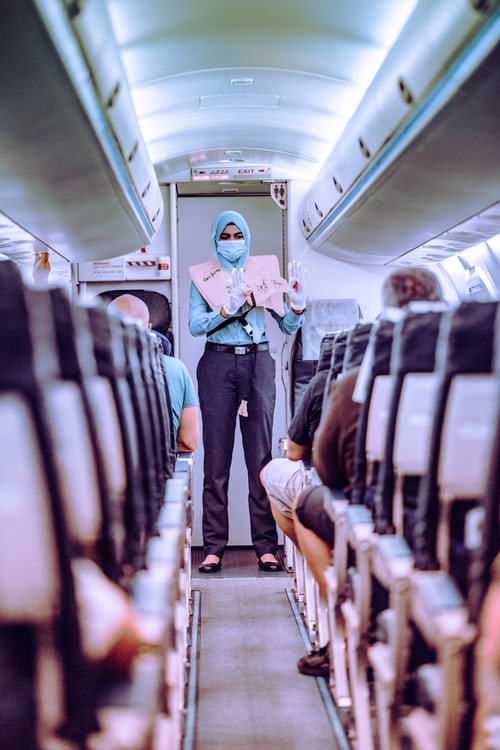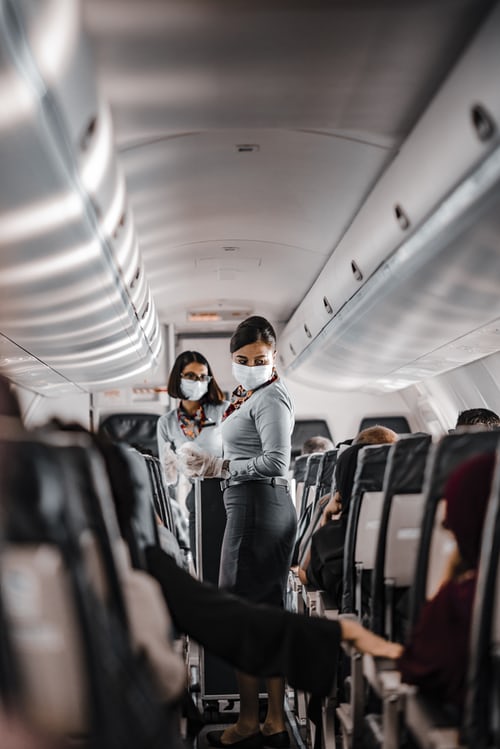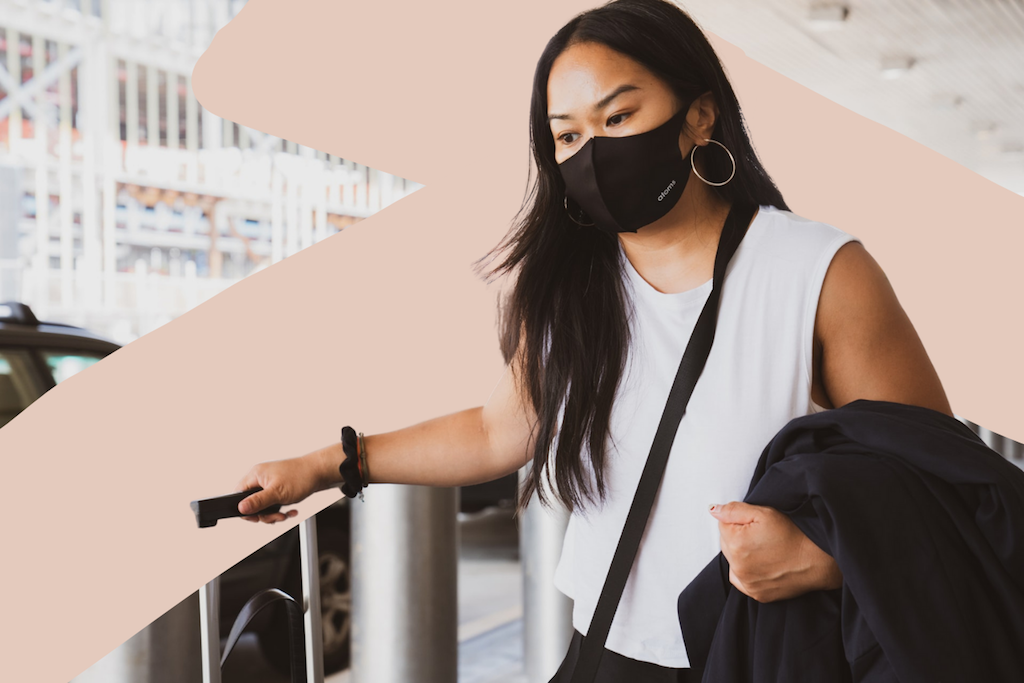It’s 2022 and uncertainty reigns supreme. The easing of some restrictions doesn’t mean that travel has returned to anything resembling normality, and, in many cases, post lockdown holidaymaking still looks very different to trips taken pre-pandemic.
The pandemic feels far from over, so first things first, it’s worth checking the UK government’s guidance on travelling abroad before booking a holiday anywhere. You can search the country you’re visiting here to see the official foreign travel advice for that destination. After that gentle act of due diligence, from PCR tests to facemasks for travel, here are some tips for flying in 2022.
Pre-Book Everything You Can
Flying can be stressful at the best of times and with all the COVID restrictions on top of the usual rigmarole, well let’s just say cortisol levels can go off the chart.
So, first things first, from PCR tests (more about that later) to seats on the plane, all the way to airport parking and transfers; simply put, pre-booking as much as you can, as far in advance as you can, will save you a lot of hassle.
When To Get A PCR Test For Travel?
Every country has different entry requirements when it comes to COVID-19, as we’re sure you’re aware. While restrictions have certainly gotten a little looser and some destinations may not require evidence of a recent negative COVID-19 test, others require proof of such a test being taken 72 hours before your departure time.
If you have not received any doses of a vaccine or have only received 1 of 2 doses, you are considered to be unvaccinated. To avoid room for interpretation, as explained by the Independent, the definition of fully vaccinated “requires travellers aged 18 and over either to have had their initial vaccine course within the past nine months, or to have received a booster”.
It is always best to research before you fly to be made aware of any sudden changes. There are lots of different test sites available across the country, and it’s likely there will be on close proximity either to where you live or where you’re flying from. If you’re travelling from a London airport like Gatwick, google ‘PCR testing Croydon‘ where you can find nearby laboratories that offer ‘Next Day RT PCR tests’, ’12-14 hour RT PCR tests’, and ‘express PCR tests’ where you can get your results in as little as 1-3 hours.
Read: 5 IDEAL ways to make your airport experience more enjoyable
The Right Facemask
Recently, many major airlines have started to ease rules on wearing masks in flight. However, other carriers are still pretty strict. As such, it can be tricky to keep track of the different policies. Indeed, as anyone who has searched Google will know, the current guidance can be a little hazy.
While British Airways, Virgin Atlantic, easyJet and Tui have all dropped their mandate to wear masks on some routes, wearing a mask on other carriers is still mandatory. Also, masks are still required in most UK airports for passengers over 11 (unless medically exempt of course), though not in some other airports on arrival. Confusing right?
While we’re seeing a surge of people wearing the classic blue surgery mask, they aren’t the best for travelling in as they offer less protection when compared with medical-grade masks, such as and N95 mask or FFP2 (otherwise known as a filtering facepiece respirator).
The WHO have cited several studies that show the filtration systems of FFP2 and N95 masks are 94% and 95% effective, respectively. That said, you’ll need a comfortable mask to travel in as you’ll be wearing it for a prolonged period of time, too, so perhaps consider this list of the most comfortable masks for travel.


Sanitise It
We’re surprised this didn’t apply to every journey in the days before COVID, but even more pertinent now is the necessity for a bottle of sanitizer and some antibacterial wipes when onboard and in flight.
Be sure to opt for the wet wipes that contain antiseptic, not just those common ol’ beauty ones, as the latter doesn’t offer much in the way of protection. When onboard, clean your seat, tray table and belt buckle, at the least, giving you protection and peace of mind.
Read: 7 IDEAL ways to kill time at the airport
It’s All About Creature Comforts
Getting comfortable on a flight during COVID times can be tough, as you’ll (likely) be masked up and generally feeling a little more on edge than usual about travel.
Do everything you can to make your flight as comfortable as possible. If you’re flying long haul, then it’s a good idea to bring a few creature comforts onboard, such as a shawl that can double as a blanket, a blow up inflatable pillow or a neck pillow to save space, and your own eye mask, too.
Sure, some airlines might provide this, but it’s reassuring to know that you have your own, don’t you think?

Speaking of creature comforts, here at IDEAL we couldn’t travel without our noise-cancelling headphones. Whether it’s a crying baby two rows back, the dulcet but distracting tones of a particularly talkative pilot, or the incessant drone of the plane’s engine, flying can be a bit of an attack on the auditory senses.
A pair of noise-cancelling headphones can really help calm the plane’s soundtrack in favour of something more soothing, whether that be an informative podcast, your favourite tunes, or just the silence that such noise-cancelling technology gifts the wearer.
Cover Yourself
Travelling abroad with travel insurance is always a good idea, but with COVID-19 still knocking about, it’s now even more sensible. Make sure you get a policy that includes any COVID-19 related emergencies, both in terms of healthcare and cancellations. Many countries now require proof of an insurance policy that covers treatment for COVID-19, making such insurance not only a wise move, but mandatory, too.
And with that, it looks like we’re touching down. It’s time to turn off all electronic devices, so we’ll bid you bon voyage!





